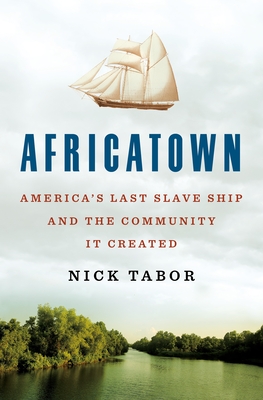Africatown: America's Last Slave Ship and the Community It Created (Hardcover)
Description
An evocative and epic story, Nick Tabor's Africatown charts the fraught history of America from those who were brought here as slaves but nevertheless established a home for themselves and their descendants, a community which often thrived despite persistent racism and environmental pollution.
In 1860, a ship called the Clotilda was smuggled through the Alabama Gulf Coast, carrying the last group of enslaved people ever brought to the U.S. from West Africa. Five years later, the shipmates were emancipated, but they had no way of getting back home. Instead they created their own community outside the city of Mobile, where they spoke Yoruba and appointed their own leaders, a story chronicled in Zora Neale Hurston’s Barracoon.
That community, Africatown, has endured to the present day, and many of the community residents are the shipmates’ direct descendants. After many decades of neglect and a Jim Crow legal system that targeted the area for industrialization, the community is struggling to survive. Many community members believe the pollution from the heavy industry surrounding their homes has caused a cancer epidemic among residents, and companies are eyeing even more land for development.
At the same time, after the discovery of the remains of the Clotilda in the riverbed nearby, a renewed effort is underway to create a living memorial to the community and the lives of the slaves who founded it.
About the Author
NICK TABOR is a freelance journalist whose work has appeared in New York Magazine, The New Republic, The Washington Post, Oxford American, The Paris Review, and elsewhere. Africatown is his first book. He lives in New York.
Praise For…
"Exhaustive research, pointed analysis, and poignant character sketches make this an essential study of racism in America.”—Publishers Weekly
“This reader's voyage begins on the slave ship Clotilda in 1860, sails through slavery and Jim Crow, and docks in today's port of environmental racism. A powerful tale of oppression, suffering, resistance, and survival, Africatown is a profoundly American saga.”—Marcus Rediker, author of The Slave Ship: A Human History
"Packed with unforgettable characters, this deeply-researched book tells a complicated story with stunning clarity from the Civil War-era South through today. Alternately enraging and inspiring, Africatown connects the history of slavery, industrial pollution, labor exploitation, movements for environmental and political justice and--always--the power of hope for the future."--Jane Dailey, author of White Fright: The Sexual Panic at the Heart of America's Racist Past
"There's a lot of talk these days about the need to trace present-day problems of poverty and racial inequality to historical discrimination and disinvestment. In Africatown, Nick Tabor has drawn this connection in the most compelling way possible, showing how a single community created as a direct legacy of the slave trade in the final throes of its rapacity continued to suffer--and strive to overcome--other ordeals throughout the generations, right now to the present-day ills of environmental racism and economic displacement. This is a true American story, deeply reported and lucidly told."--Alec MacGillis, author of Fulfillment: America in the Shadow of Amazon
“The story of Clotilda and Africatown is a story about people and the worst and best of human behavior. Nick Tabor powerfully shares that story of resilience, perseverance, persistence as history continues to emerge from family stories, archives and the muddy waters of the Mobile River.”—James P. Delgado, author, archaeologist and lead scientist in the archaeological identification and investigations of Clotilda



_0250b.png?itok=eQ8HoiV2)






